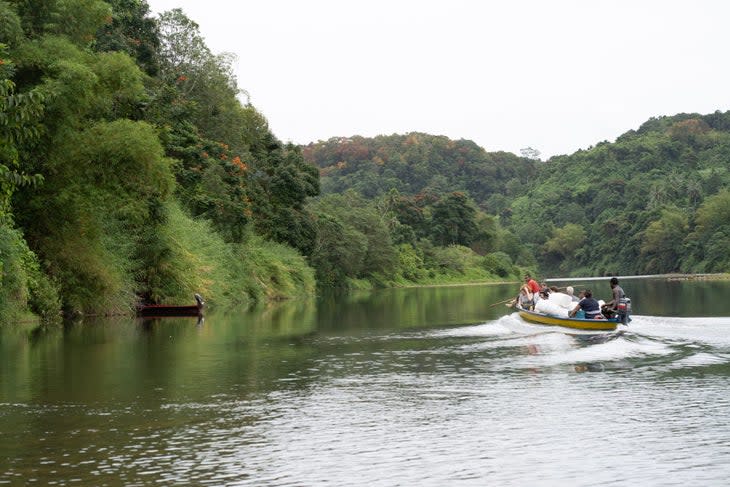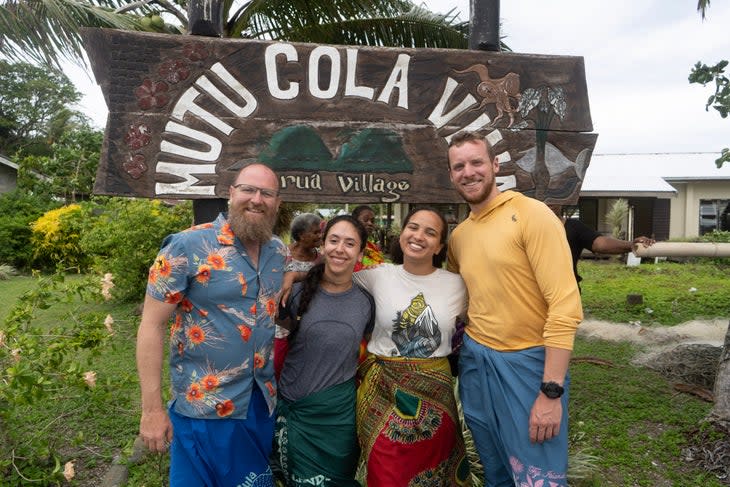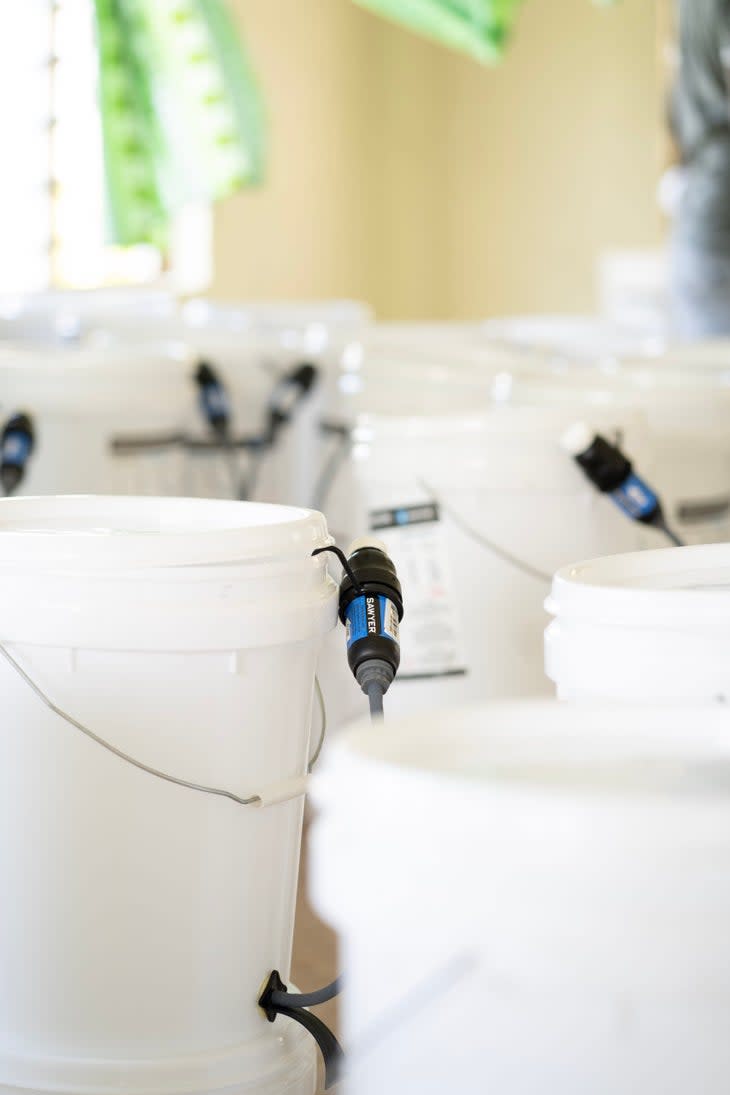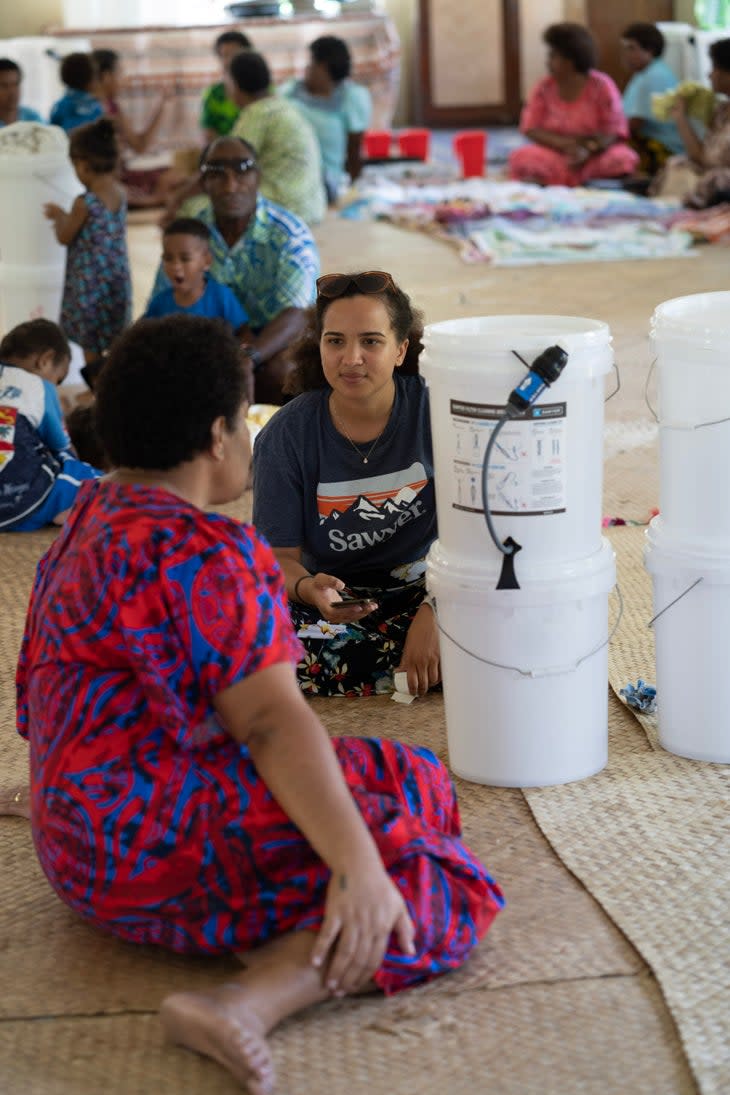One of the World’s Most Widespread Health Problems Has a Simple Solution
This article originally appeared on Outside
An estimated 2.1 billion people worldwide lack access to clean water. The causes for this global crisis vary--polluted water sources, resource management issues, climate-related drought, and poverty. The effects, however, are universal: drinking contaminated water leads to waterborne illnesses and, for the most vulnerable, death.
But it doesn't have to be this way. The same technology that hikers and adventurers have used for decades to filter backcountry water offers an easy and affordable solution. The answer is in our packs.
So, how have recreational water filters become a critical tool in solving a global health crisis? Sawyer, a trusted name in portable water filtration for 22 years, built a humanitarian-aid program that runs parallel to its retail business. You may not realize it, but the water filter you might take on your next backpacking trip is intertwined in Sawyer's mission to solve the global water crisis in our lifetimes. The company partners with nonprofits to bring clean water to millions of people worldwide. Backpacker and Outside readers Lauren Hirsch, Ryan Unger, Gabby Beckford, and Nate Dodge joined the Sawyer team on the ground in Viti Levu, Fiji, to see one of these partnerships in action.
Fiji's Water Crisis
Give Clean Water, a nonprofit dedicated to bringing border-to-border clean water to Fiji, was one of Sawyer's first international partners. Since 2008, the organization has been working to bring clean water to everyone in Fiji without access to treated water--nearly 50 percent of the country's population when the project began.

Fiji's water crisis isn't about lack of water. It's about a lack of clean water. Across the country's 300-plus islands, nearly every village has access to freshwater from dams or wells, or directly from plentiful rivers and streams. The problem? Almost all of these water sources are contaminated by human and animal activity. "I was raised in a village [in Fiji], and we always had a water problem," says Praveen Chand, pastor at Anand Assembly of God and a Give Clean Water volunteer. "I remember drinking contaminated water as a small boy because we had no way to keep our water source clean. The dirty water affected the health of my whole village. Today, when I see the water filters we bring to these communities, I think about how different my life could have been if I had access to clean water as a child."
Chand is part of the Give Clean Water team that spent a week with Hirsch, Unger, Beckford, and Dodge, showing them the diverse villages the nonprofit serves throughout Fiji. They traveled along bumpy dirt roads and upriver deep into the interior to the Melita Settlement, a native Fijian community accessible only by boat.
"As a thru-hiker, I've come across a fair share of questionable water sources," says Unger. "I always rely on filters, like the Sawyer squeeze, to make it possible for me to drink from just about anywhere on the trail. Dirty water, water sources shared with cows that are more mud than water--you name it, I've used a filter in it. So it was pretty special to see that same filter in action changing lives on the ground here in Fiji."

The water crisis in Fiji isn't limited to remote villages, however. Namaqumaqua Village is located on the Coral Coast--a popular tourist destination on Fiji's main island--just minutes from the main highway and within walking distance of two resorts. Compared to villages in the interior, Namaqumaqua has access to modern conveniences--stores, public transportation, and government amenities. But even this centrally located village struggles with access to clean water. During the rainy season, from mid-October to April, treated water supplies are regularly contaminated or washed out.
"People need water every day to survive, so sometimes they don't have the option to care about hygiene or how clean it is," says Saniteri Siga, a village elder in Namaqumaqua. "For the past 50 years, dirty water has been the main problem my village has faced. These water filters will change the lives of the children and everyone living here."
"Miracle Machines"
The development of portable water filters got a kick-start by reports of giardia in North American backcountry water sources in the 1970s, during the first boom in trekking and camping. Water filtration soon became a part of mainstream outdoor recreation, and water filtration systems became increasingly lightweight and affordable. Today, outdoor adventurers use filtration systems for outdoor pursuits big and small, and many own a variety of filters for different uses. For gearheads, the nitty-gritty details about how different water filtration systems measure up are required reading.
Sawyer introduced its proprietary Hollow Fiber Membrane filters to recreational consumers in 2001. Seven years later, the company developed its International Bucket System. The same water filtration technology backpackers rely on in the wilderness could now provide clean water to communities that lacked access to purified water.

"The concept is simple," explains Darrel Larson, founder and board member of Give Clean Water and Sawyer's international director. "With a bit of tubing, a few connecting pieces, and a Sawyer filter, anyone could convert an ordinary five-gallon bucket into a low-cost filtration system." This "miracle machine," as one Give Clean Water staffer called the bucket system, removes sediment, bacteria, protozoa, cysts, and even 100 percent of microplastics from contaminated water. And when properly maintained, one filter can provide more than enough clean water to meet the needs of a household for ten to 15 years or longer.
A Case Study in Border-to-Border Clean Water
Sawyer's portable, low-cost water filtration systems made the goal of nationwide clean water for Fiji and other countries attainable.
With the help of the Fijian Ministry of Health and GIS software, Give Clean Water mapped areas requiring clean water across the country and formed a plan to distribute Sawyer filters to every household in need. Staff members personally deliver filtration systems to each village and teach households how to use and maintain the filtration system. After the initial visit, the health department follows up multiple times to ensure proper usage and to collect GIS data on health improvements.
The results? Before receiving Sawyer filters, nearly 24 percent of families reported health issues related to consuming contaminated water. After consistent use of the filters, only 0.8 percent of households reported health issues. Adults missed fewer workdays and reported more consistent school attendance for children. Families also saved up to $600 per year--one-eighth of an average Fijian family's annual income--on purchased water and medical costs related to waterborne illness.

To date, Give Clean Water has installed Sawyer filters in 20,000 Fijian homes, schools, and medical clinics. Fiji is on track to be one of the first developing countries with nationwide access to clean water. (Sawyer partners achieved border-to-border clean water in Liberia in December 2020.) More than 200 Sawyer partner organizations in 100 countries have modeled clean water initiatives after Sawyer’s well-tested systems and data-backed learnings. Sawyer dedicates 90 percent of profits to support clean water projects around the world. Together, these organizations have provided sustainable access to clean water to more than 27.5 million people worldwide. "Every time you buy a Sawyer product, you are changing the world," says Larson.
That sounds like a lot--and it is--but with 2.1 billion people in need, there's a long way to go. But as Larson says, "We have the technology. We have great partners on the ground to make it happen. And we want you to join us in changing the world."
Founded in 1984, Sawyer has been at the forefront of innovation in outdoor protection, from water filtration to insect repellent solutions. Not only are Sawyer's filters one of the most popular on the trail, but they are also being used in over 100 developing countries to provide people with clean drinking water. Ninety percent of the company’s profits are donated towards similar projects, domestically and around the world.
For exclusive access to all of our fitness, gear, adventure, and travel stories, plus discounts on trips, events, and gear, sign up for Outside+ today.

